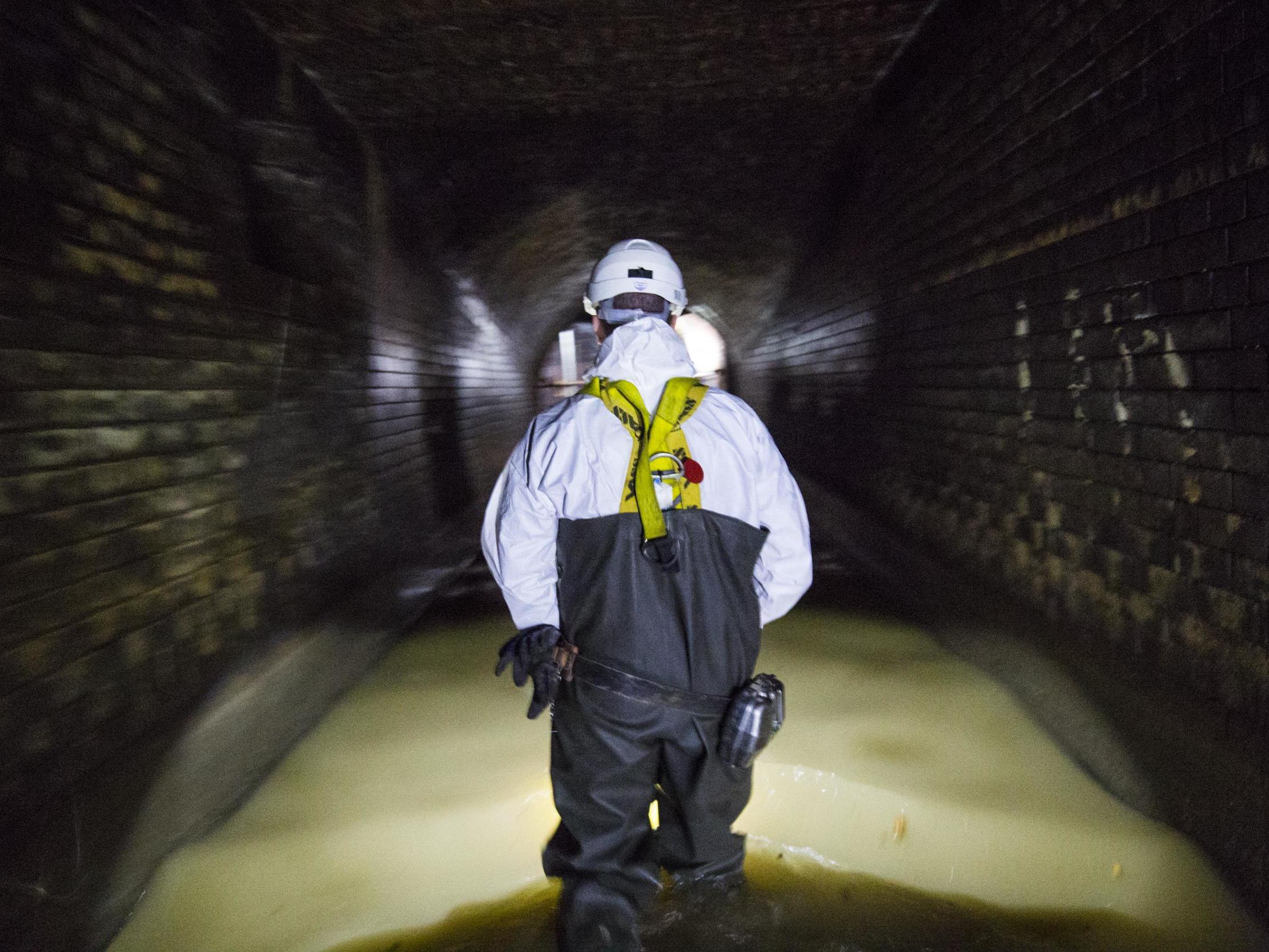Coronavirus: Sewage-based test could register infection spikes up to 10 days earlier than medical-based tests
Scientists will also assess possibility Covid-19 in wastewater is infections

Your support helps us to tell the story
From reproductive rights to climate change to Big Tech, The Independent is on the ground when the story is developing. Whether it's investigating the financials of Elon Musk's pro-Trump PAC or producing our latest documentary, 'The A Word', which shines a light on the American women fighting for reproductive rights, we know how important it is to parse out the facts from the messaging.
At such a critical moment in US history, we need reporters on the ground. Your donation allows us to keep sending journalists to speak to both sides of the story.
The Independent is trusted by Americans across the entire political spectrum. And unlike many other quality news outlets, we choose not to lock Americans out of our reporting and analysis with paywalls. We believe quality journalism should be available to everyone, paid for by those who can afford it.
Your support makes all the difference.Scientists are working to develop a standardised system to detect coronavirus in sewage, which could detect surges of infections up to 10 days before current methods.
By creating sampling, testing and scientific modelling methods, researchers hope to reduce reliance on testing large populations, which comes with financial and logistical challenges.
It is hoped the methods will be adopted by experts and government agencies as part of nationwide surveillance of Covid-19 infection levels.
The World Health Organisation has said there is currently no evidence that coronavirus has been transmitted through sewerage systems.
However, tests are able to detect the genetic residues of Sars-Cov-2, the virus that causes the Covid-19 disease, in wastewater and those infected are thought to shed the virus in their faeces.
Scientists believe future disease hotspots could be identified through nationwide monitoring of sewerage systems.
Researchers will also assess the possibility coronavirus in wastewater and sludge is infections as part of the new £1m research programme.
They believe greater understanding about the infectivity of the virus in wastewater could help assess the risk to workers in sewage plants as well as to animals and people exposed to sewage discharge in rivers and seas.
The programme, which is expected to last until October 2021, is being led by the UK Centre for Ecology & Hydrology and involves scientists from the universities of Bangor, Bath, Edinburgh, Cranfield, Lancaster, Newcastle, Oxford and Sheffield, as well as the London School of Hygiene & Tropical Medicine.
The work is being coordinated by Defra, the Environment Agency and the Joint Biosecurity Centre working closely with water companies.
Dr Andrew Singer of the UK Centre for Ecology & Hydrology, who is principal investigator of the new National Covid-19 Wastewater Epidemiology Surveillance Programme, said: “Several studies have shown that the RNA of Sars-CoV-2 – the genetic material of the virus – can be detected in wastewater ahead of local hospital admissions, which means wastewater could effectively become the ‘canary in the coal mine’ for Covid-19 and other emerging infectious diseases.
“The research will be centred on wastewater-based epidemiology – the concept is based on analysis of wastewater for markers of infectious disease, illicit drugs or pharmaceuticals in order to better inform public health decisions.
“By sampling wastewater at different parts of the sewerage network, we can gradually narrow an outbreak down to smaller geographical areas, enabling public health officials to quickly target interventions in those areas at greatest risk of spreading the infection.”
Join our commenting forum
Join thought-provoking conversations, follow other Independent readers and see their replies
Comments